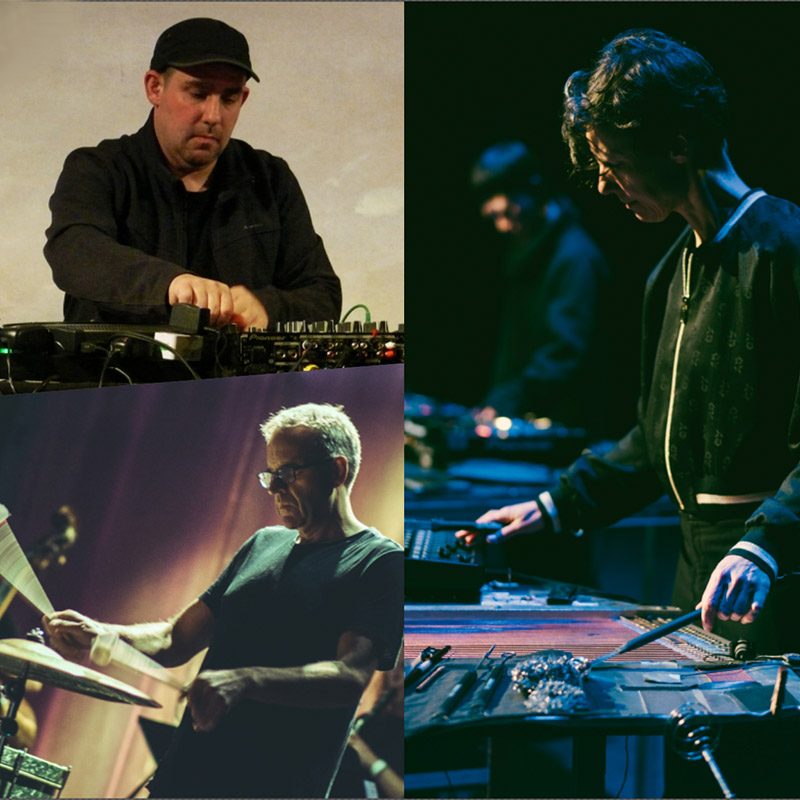Talk in German
Guests: Burkhard Beins, Andrea Neumann & Ignaz Schick
Moderation: Mathias Maschat
“The term ‘Echtzeitmusik’ (trans. real time) means that the decision about what one plays happens in the moment of playing. So is Echtzeitmusik really nothing else than improvisation. Or is it that simple?” (Ignaz Schick, Guido Möbius*)
“As a possible alternative, the term ‘Echtzeitmusik’ was coined in the mid-1990s in Berlin. It shifts the main focus of attention towards the fact that the music is shaped in the moment of its making, in ‘real time’ as it were. The term deliberately avoids denoting whether this is about instant composition or a form of improvisation.” (Burkhard Beins*)
“For me, this is demonstrative of a certain attitude, the attitude of the individual–doing it for yourself, speaking for yourself–as opposed to creating something universal where you say that others should be able to articulate it.” (Andrea Neumann*)
1990 marks the year of arrival of the first musicians in Berlin, from whom the Echtzeitmusik scene emerged. In 2000 the Labor Sonor was founded, in which later the first discourse events took place to reflect Echtzeitmusik. In 2010, the first major presentation of the scene took place in the form of a four-week festival: the Echtzeitmusiktage 2010.
The three Echtzeitmusik protagonists Burkhard Beins, Andrea Neumann and Ignaz Schick speak about 30 years of Echtzeitmusik in the second edition of the new Denkraum series imp[or]trait, moderated by Mathias Maschat. The thread of public reflection is loosely taken up again: Which developments can be observed? What has changed aesthetically, but also politically? To what extent could the Echtzeitmusik scene establish itself within the cultural landscape and where does it stand in society? What critical impulses are articulated? And what does the future of the scene look like?
*
Ignaz Schick, Guido Möbius: Echtzeitmusiktage 2010. 20 Jahre Echtzeitmusik in Berlin – Rück- und Ausblick einer Szene, programme p. 2
Burkhard Beins: Entwurf und Ereignis, in: Echtzeitmusik Berlin. Selbstbestimmung einer Szene, ed. Burkhard Beins, Christian Kesten, Gisela Nauck and Andrea Neumann, Hofheim: Wolke, 2011, p. 166–181, 167
Andrea Neumann cit.: Labor Diskurs, in: Echtzeitmusik Berlin. Self-defining of a Scene, ed. Burkhard Beins, Christian Kesten, Gisela Nauck and Andrea Neumann, Hofheim: Wolke, 2011, p. 123–145, 131
Recording: https://www.youtube.com/watch?v=VHYd6yli9tg

